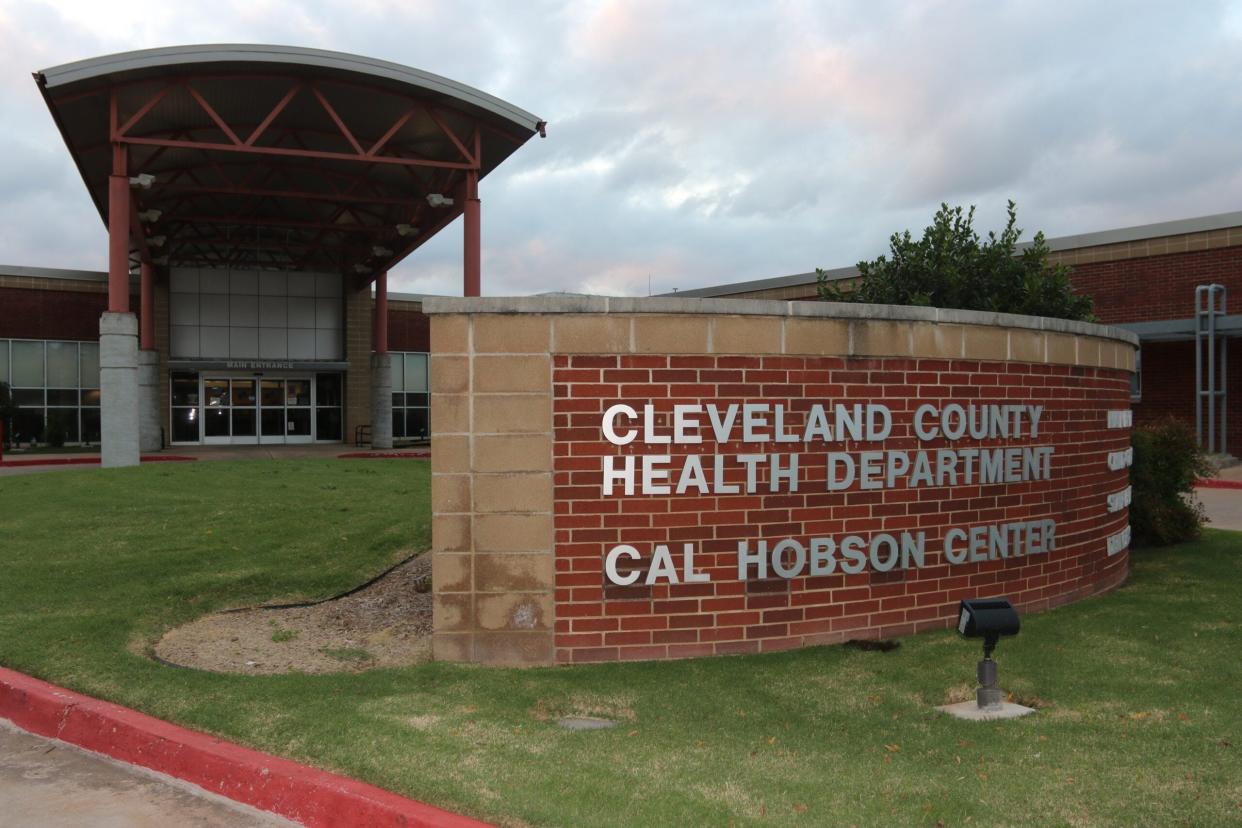Federal money meant for family planning services in OK now going to Missouri nonprofit

County health departments across Oklahoma are no longer providing confidential birth control, pregnancy testing and other services to minors after the federal government suspended the Oklahoma State Department of Health’s family planning funding over the state’s refusal to provide patients with information on abortion.
Meanwhile, the federal government has sent the state Health Department’s share of family planning funding to a Missouri nonprofit to coordinate those services independent from county health departments.
The state Health Department is using $4.5 million in state money to continue family planning services through its network of county health departments after the U.S. Department of Health and Human Services suspended the agency’s Title X grant funding in May. Minors can still access confidential sexually transmitted infection and HIV testing at state clinics, but birth control and pregnancy testing aren’t available without permission from a parent.
Oklahoma had the fourth-highest teen birth rate in the nation in 2021, according to the most recent data available from the Centers for Disease Control and Prevention. The Tulsa youth sexual health nonprofit Amplify has worked to prevent teen pregnancy over the last decade, but its staff worries that county health departments’ loss of federal family planning funding could limit that work. Some clinics that students and health educators have relied on for years have lost the ability to provide confidential services for minors, which could cause confusion for those trying to access resources, said Jenny Briggs, a director at Amplify.
“We know that clinic access, education, conversations with trusted adults that young people love are the biggest contributing factors to young people being able to make healthy choices and plan for their future,” Briggs said. “When we take away one of those key components, I would expect that there would be problems.”
With $3.3 million in new federal funding, the nonprofit Missouri Family Health Council is working on a plan to administer confidential services for minors and other Title X resources in Oklahoma through a new network. The organization said it plans to apply to manage Oklahoma’s federal funding again next fiscal year, too.
Clinics that participate in the federal Title X program provide confidential and low-cost family planning resources like contraceptives, counseling and testing for pregnancy for all ages, including minors. They can’t provide abortions directly, but they are required to offer information and counseling on all options, including abortion, if a pregnant patient requests it. Those guidelines haven’t been changed by the U.S. Supreme Court Dobbs v. Jackson Women’s Health Organization decision, even in states with abortion bans.
But the state Health Department says Oklahoma law stops it from providing patients with information on abortion. Oklahoma enacted a trigger law last year that put a near-total abortion ban from 1910 back into effect immediately after the U.S. Supreme Court overturned Roe v. Wade. Anyone who advises a woman on how to obtain an abortion can be found guilty of a felony and face a prison sentence of between two and five years.
Erica Rankin-Riley, a spokeswoman for the state Health Department, said the agency supports the work of the Missouri Family Health Council, but disagrees with the federal government’s suspension of funding over its interpretation of state law. The agency is appealing the decision.

The state Health Department believes it’s important to continue to provide family planning services with state funding because of its network of county health departments and long history with the Title X program, Rankin-Riley said. But the department is barred from continuing some confidential services by a state law that prevents minors from receiving physical examinations or prescription drugs without parental consent, she said.
A handful of federal court cases have established that even in states with laws that require parental consent for minors to get contraceptives, federal rules that allow minors to receive confidential services through the Title X program take precedence. But according to Oklahoma law, outside the program, minors can only consent to medical care in specific situations, like if they’re married, emancipated from their parents, or are or have been pregnant.
A bill that stalled in the House last year would have stopped clinics, including county health departments, from prescribing contraceptives or providing family planning counseling to minors without parental permission. In his presentation, Sen. David Bullard, R-Durant, said he was motivated to author the bill after hearing about students at Langston Hughes Academy in Tulsa who were transported to a Title X-funded clinic, where one received a removable birth control implant without parental consent.
One of Amplify’s priorities is making sure young adults, school staff and families know how to access the family planning resources they need, now that state Health Department clinics have more limited services.
Amplify works closely with Tulsa medical provider Community Health Connection, which has received federal Title X funding separately from the state Health Department since 2016. This year, it received $216,000 in additional funding to expand family planning and continue confidential services for minors.
The organization already has about 20,000 active patients and is anticipating several thousand more who could start receiving services in the coming months, said Jim McCarthy, Community Health Connection CEO. The health center’s three medical providers will spend a larger part of their time on offering family planning services to meet increased demand from county health clinics, he said.
Title X providers give patients the information they need to make decisions on their pregnancies, but they never advise one option over others, said Michelle Trupiano, executive director of Missouri Family Health Council. Clinics can provide patients with information on abortion providers, including names, addresses and phone numbers, and they can refer them out of state if necessary, according to program guidance. But they can’t take extra steps like providing transportation or making an appointment for a patient.
Oklahoma’s congressional delegation wrote a letter in June calling for the U.S. Department of Health and Human Services to return Title X funding to the state and accusing federal officials of prioritizing abortion over health care. Several state delegates also introduced legislation banning the federal government from requiring Title X funding recipients to provide information on abortion.
“Oklahoma values every child and has the legal right to stand up for our children after the Supreme Court’s Dobbs decision overturned Roe v. Wade,” U.S. Sen. James Lankford said in an emailed statement. “The Biden administration remains obsessed with increasing the number of abortions in America and finding ways to force taxpayers to pay for abortion or punish individuals who do not support their pro-abortion stance.”
Then-Attorney General John O’Connor issued guidance last year encouraging law enforcement to protect free speech when enforcing Oklahoma’s abortion ban. He wrote that “mere advocacy” is protected by law, but law enforcement could consider pursuing cases where a person advised or encouraged a woman to get an abortion, especially if they took “tangible action” to help access the procedure. Attorney General Gentner Drummond, who took office in January, is working on updated guidance, but it’s unclear when it will be released, an agency spokesman said.
There’s a political climate in Oklahoma of not wanting the federal government to interfere with state politics, said Sen. Carri Hicks, D-Oklahoma City, a member of the Senate Health and Human Services committee. Despite high rates of infant and maternal mortality, she said she’s not optimistic that state leaders will adopt policies that will allow the state Health Department to reclaim federal funding for next fiscal year.
“I would say it’s disappointing more than anything, because again, we have plenty of data, an overwhelming amount of data that is showing that what we’re doing is trending in the wrong direction,” Hicks said. “And yet, we’re continuing to do those very same things year over year and double down on what I consider failed policy.”
The Frontier is a nonprofit newsroom that produces fearless journalism with impact in Oklahoma. Read more at www.readfrontier.org.
This article originally appeared on Oklahoman: Oklahoma clinics no longer providing confidential family planning services to minors

